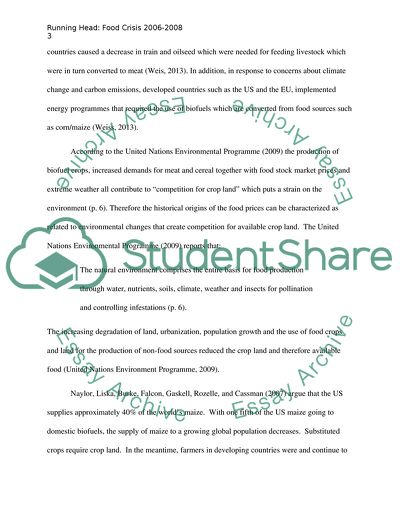Cite this document
(The Historical, Economical, and Political Origins of the Food Crisis o Coursework, n.d.)
The Historical, Economical, and Political Origins of the Food Crisis o Coursework. Retrieved from https://studentshare.org/social-science/1809347-explain-the-historical-economical-and-political-origins-of-the-food-crisis-of-2006-2008
The Historical, Economical, and Political Origins of the Food Crisis o Coursework. Retrieved from https://studentshare.org/social-science/1809347-explain-the-historical-economical-and-political-origins-of-the-food-crisis-of-2006-2008
(The Historical, Economical, and Political Origins of the Food Crisis O Coursework)
The Historical, Economical, and Political Origins of the Food Crisis O Coursework. https://studentshare.org/social-science/1809347-explain-the-historical-economical-and-political-origins-of-the-food-crisis-of-2006-2008.
The Historical, Economical, and Political Origins of the Food Crisis O Coursework. https://studentshare.org/social-science/1809347-explain-the-historical-economical-and-political-origins-of-the-food-crisis-of-2006-2008.
“The Historical, Economical, and Political Origins of the Food Crisis O Coursework”, n.d. https://studentshare.org/social-science/1809347-explain-the-historical-economical-and-political-origins-of-the-food-crisis-of-2006-2008.


